How will the EU regulate artificial intelligence (AI), and what should Ukraine expect?
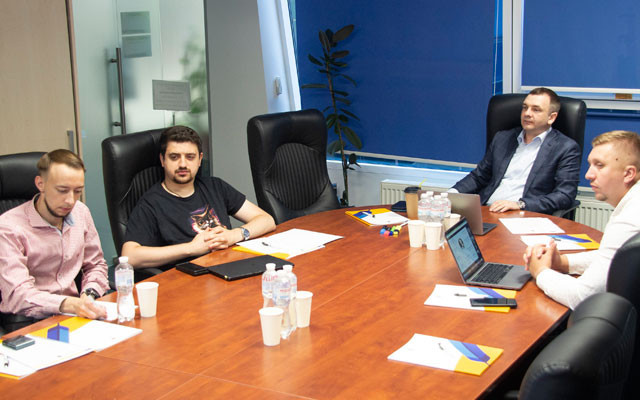
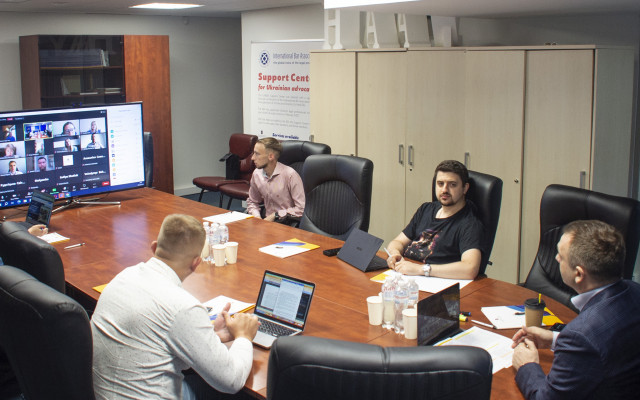
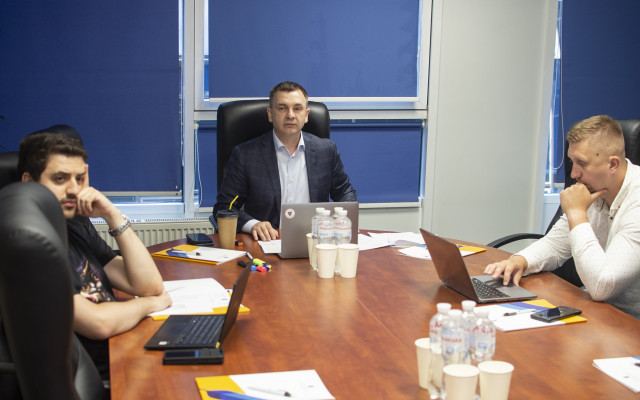
The European Union is approaching adopting a regulation that will govern the use of artificial intelligence. Ukraine will also have to regulate this area. What experience should be taken into account?
This was discussed during the second meeting of the UNBA Working Group on legal Regulation of artificial intelligence, formed by the Ukrainian National Bar Association. The event was attended by representatives of the Verkhovna Rada (Parliament) Committee on Digital Transformation, the Ministry of Digital Transformation of Ukraine, the Secretariat of the Ukrainian Parliament Commissioner for Human Rights (Ombudsman), and the IT Ukraine Association.
"Today, we see problems arising from the activities of products that use artificial intelligence. This includes voice substitution, image substitution, and personality substitution. This violates the property rights of people and businesses and commits offenses," said Valentyn Gvozdiy, Chairman of the Working Group, UNBA Vice President, "The UNBA, which is the regulator of the profession in Ukraine and is a self-governing organization that unites all lawyers, has taken the initiative to start the process of developing ways of Regulation that could be proposed to our parliament in the future.
Hanna Udovenko, Senior Assistant to the Head of the Working Group, revealed the critical provisions of the draft EU Regulation on Artificial Intelligence Act.
Artificial intelligence is proposed to be defined as a machine system designed to function with varying levels of autonomy and that can produce results such as forecasts, recommendations, or decisions that affect the physical or virtual environment for explicit or implicit purposes.
The Regulation aims to promote the implementation of human-centered and reliable artificial intelligence and to ensure a high level of protection of health, safety, fundamental rights, democracy, and the rule of law, as well as the environment from the harmful effects of artificial intelligence.
To this end, the document proposes, in particular, to introduce rules for the placement on the market, commissioning, and use of AI systems; prohibitions on certain practices in the field of AI; requirements for high-risk AI systems and their operators; transparency rules for systems that interact with individuals to recognize emotions and biometric categorization and edit images, video, and audio; rules for market monitoring, market surveillance, and governance; measures to support innovation with a particular focus on SMEs and start-ups, including regulatory sandboxes and targeted measures aimed at reducing the regulatory burden (to view the entire project presentation, please follow the link).
The EU Artificial Intelligence Regulation is scheduled to come into force at the end of 2025.
We are following the European integration path, and Ukraine will have to implement the Artificial Intelligence Act, which is currently being developed for EU countries. This opinion was expressed by Mykhailo Kryachko, Chairman of the Verkhovna Rada Committee on Digital Transformation. At the same time, he noted the need to study the experience of Asian countries. "They took a different path. This is partial Regulation or deregulation in general," explained the MP. "It is clear that they do this to encourage future stakeholders to invest in their countries. Mr. Kryachko emphasized that we should remember domestic producers and study the best practices of Canada, where the emphasis is on encouraging AI.
The head of the Parliamentary Committee also suggested creating a working group based on his Committee.
Volodymyr Behei, the state expert of the expert group on the development of new technologies and digital innovations of the Digital Economy Directorate of the Ministry of Digital Transformation, recalled that in 2020, they created a Committee for the Study of Artificial Intelligence, which included developers, scientists, and researchers. Today, this Committee has 53 members. The Committee has several working groups, one of which is dedicated to the issue of Regulation.
"We are also members of the Council of Europe Committee on Artificial Intelligence. Its outcome will be a Convention - a framework document that will legally oblige the development and application of AI based on the Council of Europe standards on human rights, democracy, and the rule of law," said V. Begei. - "The main focus of our work in the Council of Europe on this Convention is on the critical issues of risks from the use of AI. The result of our work will be adopting legislation at the national level to regulate this area.
According to the expert, this issue was considered by the Committee's working group. "We considered several important issues regarding various forms and possibilities of regulating this area. In general, our vision is that any chosen path should consider the interests of national AI developers," said the Ministry of Digital Transformation representative. - "We must understand that our movement towards Europe obliges us to implement the laws of the European Commission on artificial intelligence. But we must also take into account the opinion of national producers."
Nataliia Shcherbyna, Deputy Director of the Department for Monitoring of Information Rights of the Ombudsman's Office, the Ministry of Digital Transformation, and the EU4DigitalUA project spoke about the joint work of the Ombudsman's Office and the EU4DigitalUA project.
"To prepare for any possible challenges in the field of artificial intelligence regulation, some recommendations are needed, including in terms of personal data protection, before regulations are agreed, and a regulatory model is chosen," she warned. - "We have asked our partners and EU project experts to help us with such a study of AI technologies in terms of personal data protection. And this study will have several aspects: the role of AI in the modern world, the impact of AI on human rights, legislation and ethical aspects of data protection and AI technologies, and assessment of personal data protection risks when using AI." The study of these issues is expected to result in recommendations for government agencies and industry IT companies.
The expertise of the Ukrainian National Bar Association members and the possibility of additional involvement of specialists, including those from abroad, may help develop best practices in Ukraine and implement them in our legislation. Mr. Gvozdiy expressed this opinion. "We all realize that we are now in the process of European integration. We must work as hard as possible to harmonize Ukrainian legislation with EU legislation. That is why we can welcome the proposal of Mykhailo Kryachko, Chairman of the relevant parliamentary Committee, to establish a working group under the parliament," commented the UNBA Vice President, "It is vital that those investors who come to us, companies, and dealers, should not only feel comfortable but also feel like they are in developed jurisdictions.
Popular news
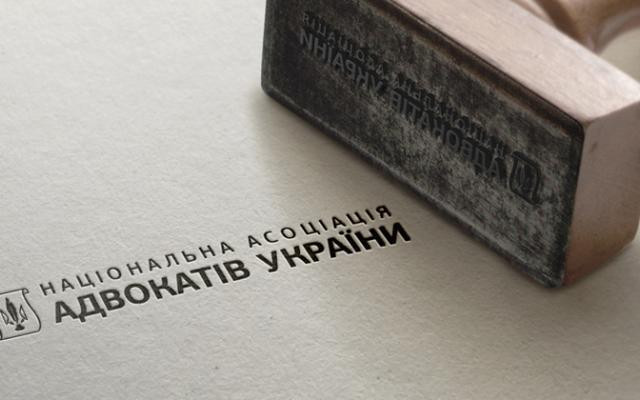
Self-government
The BCU demands a review of the composition of the government working group on reforming the advocacy profession
The President of the UNBA, BCU Lidiya Izovitova, appealed to the Cabinet of Ministers of Ukraine to review the composition of the working group on improving legislation in the field of advocacy and legal practice.

Discussion
Why lowering the age of marriage lacks legal logic
Although until 2012 there was a provision in family law that allowed children to marry from the age of 14 under certain circumstances, its return to Ukrainian law would contradict international obligations and the logic of criminal law.
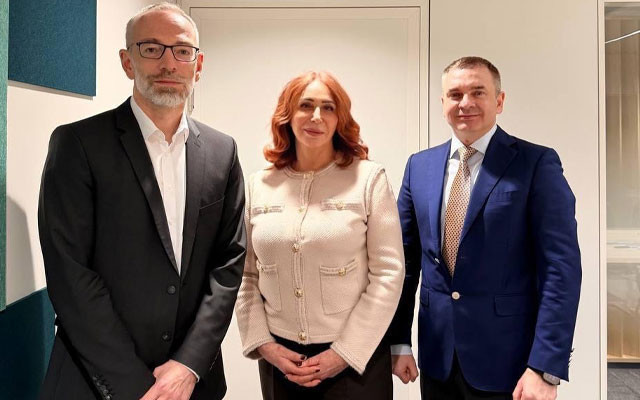
European integration
Open dialogue between the UNBA and the European Commission on the path to EU
The Ukrainian National Bar Association held a working meeting in Brussels with Mr Wolfgang Nozar, Head of Unit for Governance, Rule of Law and Financial Assistance, Directorate-General for Enlargement and Eastern Neighbourhood (DG ENEST), European Commission.

Self-government
A report on Ukrainian advocacy was presented in the European Parliament
Can a shadow report on advocacy replace the political framework of the Roadmap on the rule of law with demands for the restructuring of self-government? Where is the line between accountability and the seizure of institutions? And how can we respond to narratives with data rather than impressions?
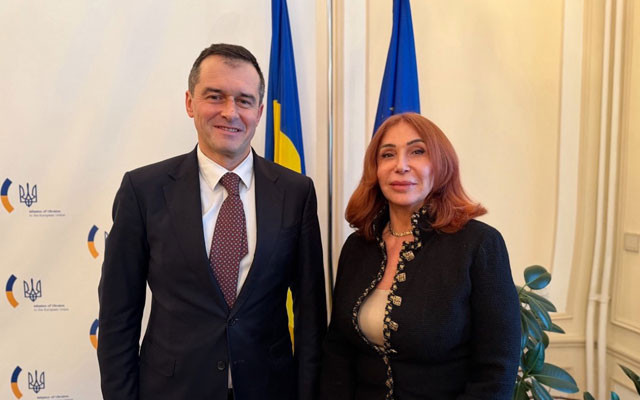
European integration
UNBA and Ukraine's representation to the EU have synchronized their priorities
On February 5, in Brussels, the President of the UNBA, BCU Lidiya Izovitova held a working meeting with the Ambassador Extraordinary and Plenipotentiary of Ukraine, Representative of Ukraine to the European Union Vsevolod Chentsov.

Guarantees of the practice of law
Proceedings opened following attack on advocate in Dnipro
The Committee for the protection of advocates' rights and guarantees of legal practice of the UNBA appealed to law enforcement agencies in connection with an advocate's report of an attack while performing his professional duties. The information was entered into the Unified Register of Pre-trial Investigations and a pre-trial investigation was initiated.
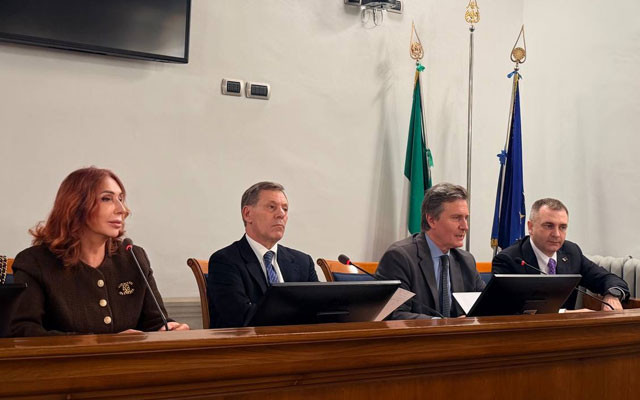
Interaction
«With us — to Europe»: Italian advocacy supports UNBA initiatives
On January 30, a meeting was held in Rome between a delegation from the Ukrainian National Bar Association and the National Bar Council of Italy (Consiglio Nazionale Forense, CNF) on the standards and practices of the legal profession and their significance for Ukraine's European integration process.
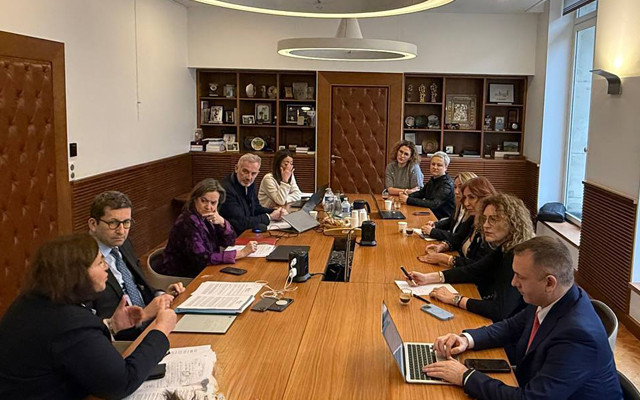
Interaction
France confirms cooperation with UNBA on reforms in the field of the rule of law
On January 29, a working meeting between representatives of the Ukrainian National Bar Association and the French National Bar Council (Conseil National des Barreaux, CNB) took place in Paris.
Publications

Volodymyr Matsko Extradition as a systemic form of rights violations

Victoria Yakusha, Law and Business The anti-corruption vertical cannot «take care» of the Bar as an institution, - acting head of the HQDCB

Censor.net Protecting advocates – protecting justice: addressing concerns about the new law

Ihor Kolesnykov A BRIEF SUMMARY REGARDING THE APPLICATION OF THE ORDER ON EXTENDED CONFISCATION IN LATVIA REGARDING FINANCIAL ASSETS OF…

Valentyn Gvozdiy WORKING IN A WAR ZONE

Lydia Izovitova Formula of perfection

Sergiy Vylkov Our judicial system is so built that courts do not trust advocates

Iryna Vasylyk Advocacy in the proclamation of Independence of Ukraine
